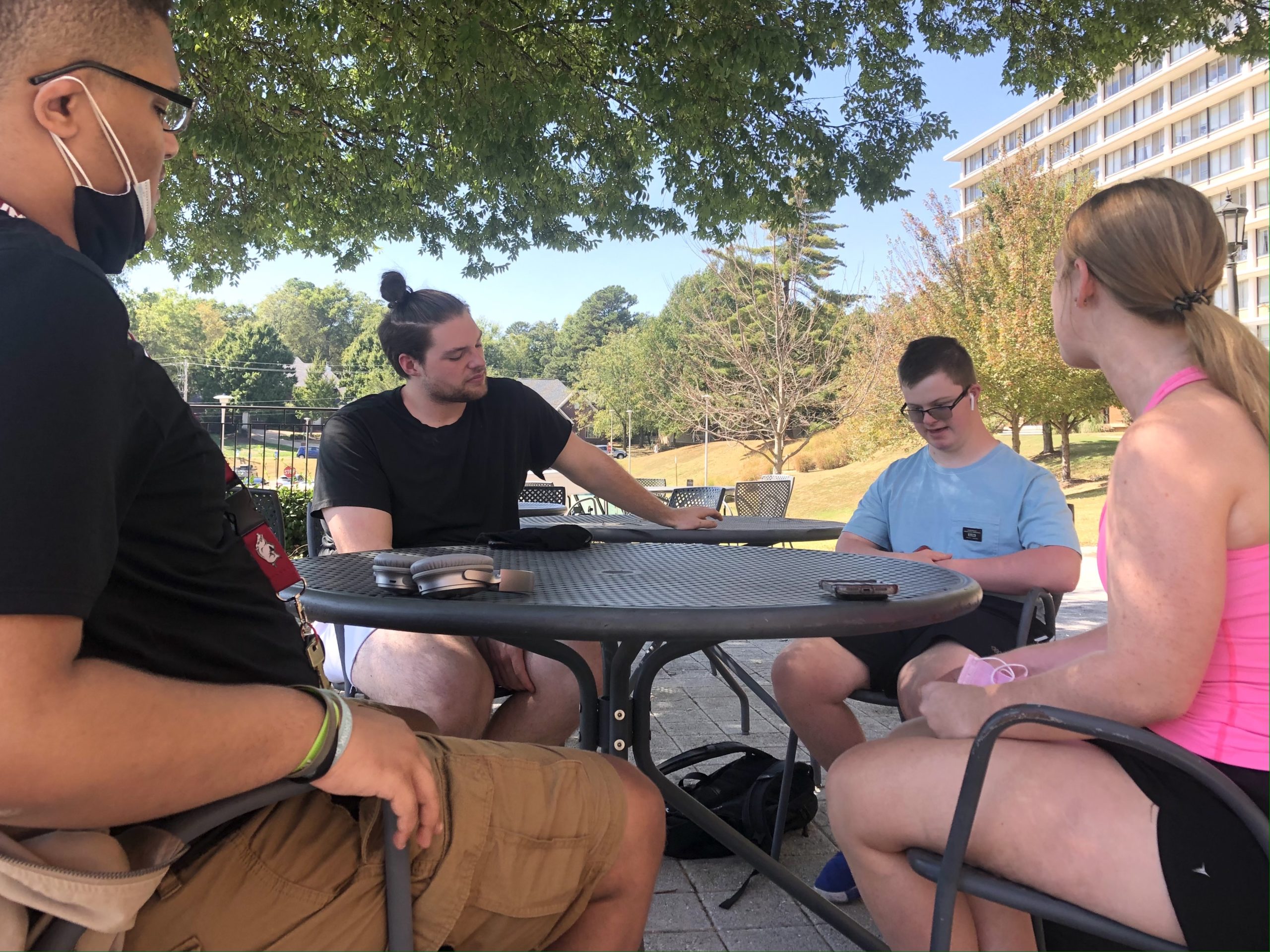By: Madyson Deaton
FAYETTEVILLE, Ark. (UATV) – When COVID-19 struck campus, several programs at the University of Arkansas transitioned their policies to follow COVID-19 guidelines.
The EMPOWER program is one of many affected. This four-year, non-degree program assists students ages 18 through 24 with mild intellectual or cognitive disabilities. The main goals include employment, independent living, and a college experience to build social skills.
During COVID-19, the main changes occurred for the peer mentors, who assist and support the EMPOWER students weekly. The program learned to adjust the mentors schedules while still following the COVID-19 guidelines.
These guidelines include wearing a face covering, washing hands frequently, maintaining at least 6-feet of distancing, and staying home if sick, according to the Pat Walker Health Center.
Before COVID-19, in-person interviews with peer mentors and face-to-face contact with mentees existed. Post-COVID, the interview process occurs virtually, but connecting students with their mentors happens face-to-face following the university’s COVID-19 policies.
“The only thing we really changed is that we implemented the face mask policy and social distancing when possible,” Volunteer Service Coordinator Amanda Wallace said.
The EMPOWER quarantine process differentiates depending on vaccinations resulted in the biggest change of last year, Wallace said. EMPOWER follows the university’s quarantine guidelines.
Pat Walker Health Center said fully vaccinated people with no COVID-19 symptoms do not need to quarantine if exposed to a suspected or confirmed COVID-19 case. Vaccinated individuals showing no symptoms should be tested with a PCR test three to five days after exposure.
The 2020-2021 school year, when the university switched to remote learning, the mentors and mentees continued meeting in-person by abiding the U of A mask and social distancing guidelines. This year, the program still encourages their students and mentors when on or off-campus to follow what was done last year, Wallace said.
Sophomore Mackenzie Moore meets with her mentee, Esther Cottle, one or two times a week on and off-campus for an hour and a half to check-in with one another. Moore accommodates the mask policy to what Cottle is more comfortable with when eating at restaurants, Moore said.
Cottle said her experience meeting in-person with Moore giver her a better way to connect and visit with her. She continues to wear a mask for all opportunities provided with Moore, Cottle said.
All EMPOWER students work with a peer mentor to assist and support them in their academics, social life, and independent living every semester. The program requires peer mentors to meet with your mentee for one to three hours per week.
For fall 2021, EMPOWER encountered an increase of 150 to 160 peer mentor and intern applications. From many interviews, students stated that they were eager to get back involved on campus from being remote last year, which resulted in the increase in number, Wallace said.


